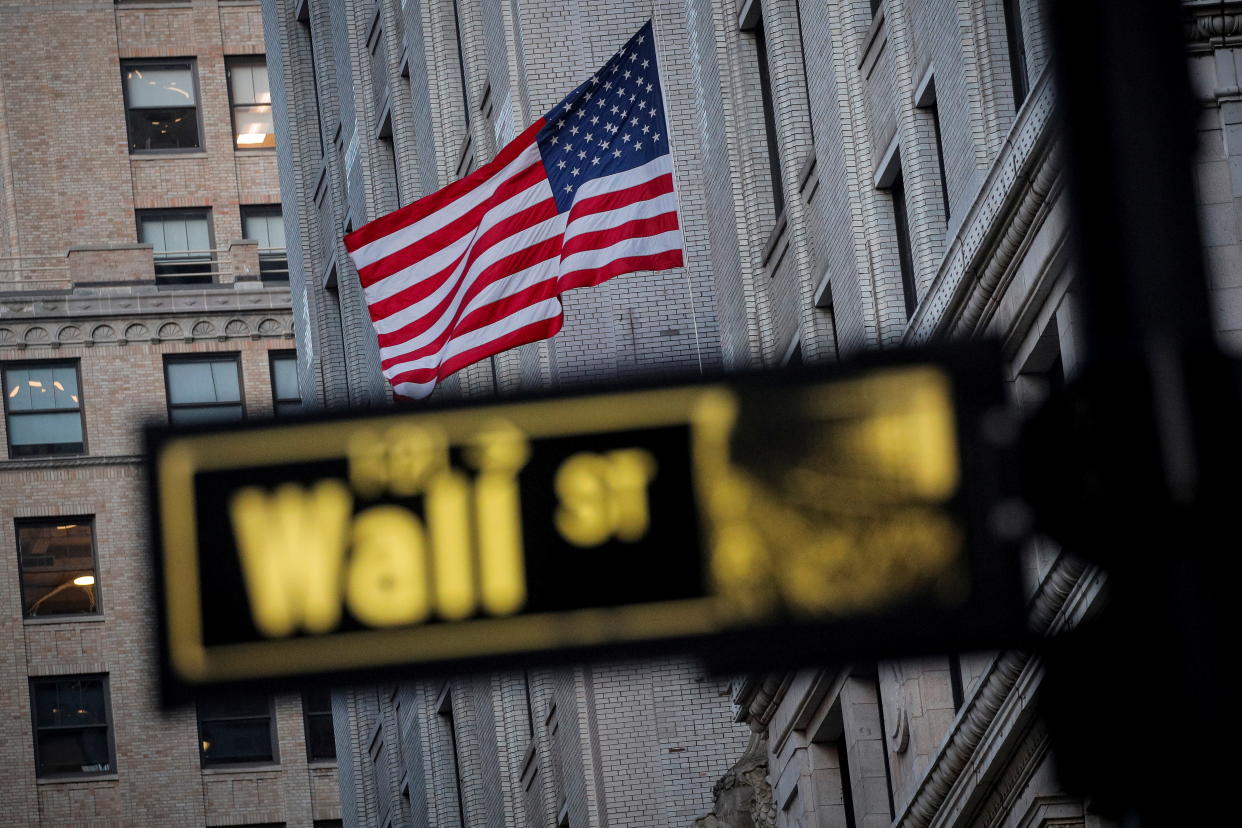Recessions aren't just the other side of growth: Morning Brief
This is The Takeaway from today's Morning Brief, which you can sign up to receive in your inbox every morning along with:
The chart of the day
What we're watching
What we're reading
Economic data releases and earnings
Third quarter GDP data released Thursday morning was the latest indicator to scoff at recession worries.
The economy grew at an annualized rate of 4.9% over the months of July, August, and September, the fastest in nearly two years, with this growth driven by a robust jump in consumption.
Most of the Wall Street economists in our inbox offered a similar message: This rise in consumption — and an increase in inventories — won't be sustained.
No recession today, once again, but maybe recession tomorrow.
But this year's perpetually delayed recession forecasts are less a lesson about the folly of forecasts and more a reminder that recessions are not just the opposite of growth.
As the National Bureau of Economic Research (NBER) outlines in its definition of a recession, "Because a recession must influence the economy broadly and not be confined to one sector, the committee emphasizes economy-wide measures of economic activity."
If you're a worker in the tech industry, there's been a recession in your business for the better part of a year. Same goes for real estate brokers in dozens of major metro areas.
And though we all use technology and need places to live, softness in these two pockets of the economy has, so far, not been a canary in the economic coal mine. It also doesn't have to become one.
Manufacturing is another area where weakness has persisted this year and sent concerning signals about the economy's broader health.
According to data from the Institute for Supply Management and S&P Global, which each publish monthly survey-based reports on activity across the economy, US manufacturing has been in a downturn for months. Earlier this week, S&P Global's report suggested the decline in US manufacturing has finally stopped.
And while there's doubtless spillover across industries not captured by these reports, the general feeling or vibe that a recession is nigh hardly sets the table for this outcome coming through.
Some worried earlier this year that we'd talk ourselves into recession. Actual results have made clear these worries are unfounded.

Elsewhere in its recession outline, the NBER notes: "In our interpretation of this definition, we treat the three criteria — depth, diffusion, and duration — as somewhat interchangeable. That is, while each criterion needs to be met individually to some degree, extreme conditions revealed by one criterion may partially offset weaker indications from another."
This is a more formal way to say that recession in one industry is not a recession in all industries.
And as obvious as this statement might read, in the current economic moment, it remains worth saying.
Rarely is the condition of the economy considered universally anything — good, bad, indifferent.
But recessions, even those considered shallow by economists, are not events that require a magnifying glass and a creative interpretation of economics to find.
Millions of people lose jobs. Committed plans are abandoned. The outlook for both growth and potential dims.
The US economy today is not in recession. Signs that we're imminently tipping into one are limited. But if and when the day comes that this economic expansion meets the limits of its potential, you won't be asking.
Click here for the latest stock market news and in-depth analysis, including events that move stocks
Read the latest financial and business news from Yahoo Finance

